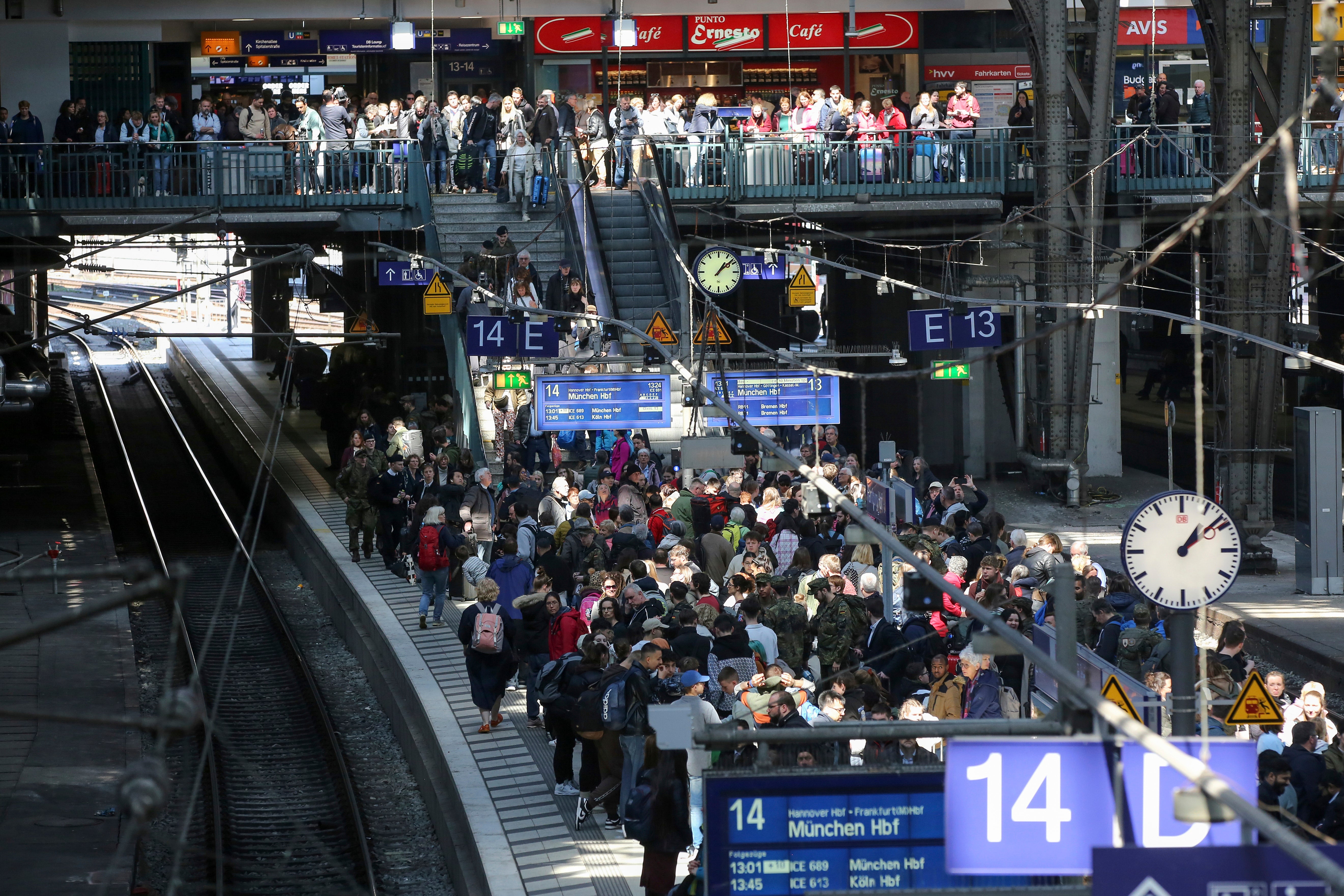German rail union threatens open-ended strikes over pay dispute
A German rail workers’ union says it will ask its members to vote on all-out strike action after long-running salary talks with the main national railway operator broke down

Your support helps us to tell the story
From reproductive rights to climate change to Big Tech, The Independent is on the ground when the story is developing. Whether it's investigating the financials of Elon Musk's pro-Trump PAC or producing our latest documentary, 'The A Word', which shines a light on the American women fighting for reproductive rights, we know how important it is to parse out the facts from the messaging.
At such a critical moment in US history, we need reporters on the ground. Your donation allows us to keep sending journalists to speak to both sides of the story.
The Independent is trusted by Americans across the entire political spectrum. And unlike many other quality news outlets, we choose not to lock Americans out of our reporting and analysis with paywalls. We believe quality journalism should be available to everyone, paid for by those who can afford it.
Your support makes all the difference.A German rail workers' union said Thursday that it will ask its members to vote on all-out strike action after long-running salary talks with the main national railway operator broke down.
The EVG union has already staged hours-long or one-day “warning strikes,” a common tactic in German wage negotiations. But it's now threatening to move to longer walkouts as its negotiations with state-owned Deutsche Bahn have reached an impasse.
Union leader Martin Burkert said authorization for open-ended strikes will require three quarters of all votes cast in the ballot that will take four to five weeks to be completed. He said “warning strikes” would not be ruled out while voting is taking place. The announcement comes just as school summer vacations are starting in Germany.
Union leaders on Wednesday said the latest round of talks had failed. EVG has called for a pay increase of 12% and for the agreement to remain valid for 12 months rather than Deutsche Bahn’s proposed 27 months. It says that Deutsche Bahn is offering too little, too late.
The past few months have seen plenty of other tense salary negotiations in Europe’s biggest economy as inflation remains high. Germany’s annual inflation rate stood at 6.1% in May.
In April, German government officials and labor unions reached a pay deal for more than 2.5 million public-sector workers, ending a lengthy dispute after arbitrators were called in to propose a compromise.
During the rail pay dispute, Deutsche Bahn has accused EVG of trying to score points in a bitter long-held rivalry with the other main railway workers' union, the traditionally more aggressive GDL. The GDL is due to start negotiations for its members later this year.